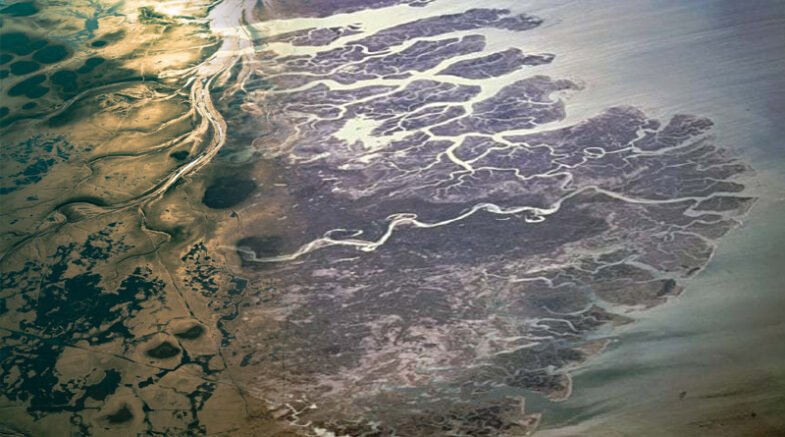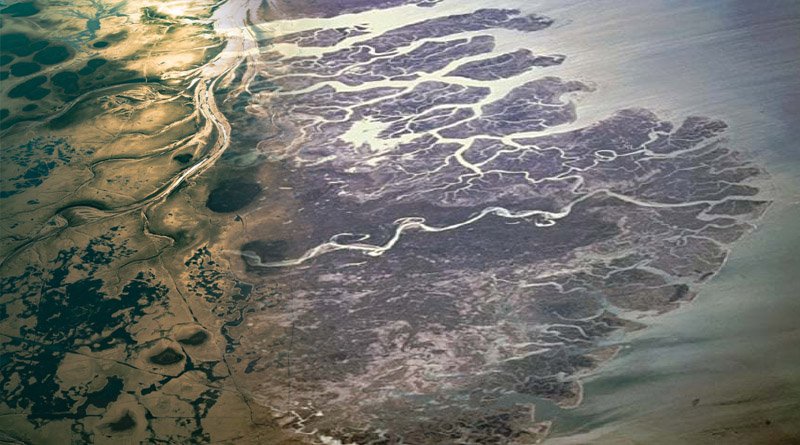The United Nations has agreed to create a global convention to protect the shrinking delta of the Mighty River Indus of Pakistan from rising climate change impacts.

The United Nations has agreed to create a global convention to protect the shrinking delta of the Mighty River Indus of Pakistan from rising climate change impacts.
The change came about after a powerful international civil society coalition of experts, academicians, decision-makers, and stakeholders unanimously called for the UN Convention for the Conservation of River Deltas (UN-CCRD) as a follow-up to the UN Human Rights Declaration, UN Geneva Pact, and other agreements to ensure that all of the world’s major deltas were dying due to the negative effects of climate change and environmental degradation, specifically sea intrusion.
The African Centre for Climate Actions and Rural Development Initiative (ACCARD) in collaboration with Nigeria’s Bayelsa State Government, the Institute for Environmental Diplomacy and Security at the University of Vermont, the Consortium for Capacity Building at the University of Colorado, Transboundary Water In-Cooperation Network (TWIN), Water Environment Forum-Pakistan, Center for the Advancement of Public Action (CAPA) Bennington College; Vietnam National University, Hanoi, Vietnam and Center for Environment and Sustainable Livelihood Projects (CESLP), among others hosted a side event at the UN Water conference titled “Integrative Highland to Ocean (H2O) Action for Disappearing Deltas: Towards a UN Convention on Conserving River Deltas.
In contrast to Freeman Elohor Oluowo of ACCARD and Prof. Dr. Asim Zia, Director, Institute for Environmental Diplomacy, Vermont, who were present in person, former senator and federal minister for information and broadcasting and Chairman World Environment Forum, a civil society organisation working to protect water resources and the environment, participated virtually to represent Pakistan in the side event.
The UN Sustainable Development Goals (SDGs), which include SDG-6, “Clean Water,” SDG-13, “Climate Action,” and SDG-14, “Conserving and sustainably using the oceans, seas, and marine resources,” would be more easily achieved with the help of the global convention.
The announcement followed the coalition of non-governmental and civil society organisations mentioned above’s successful campaign, which launched the movement for a UN global convention to protect deltas.
The Niger Delta in Nigeria, the Indus Delta in Pakistan, the Mekong River, the Colorado River, the Nile River, and the St. Lawrence River transboundary river basins were the first deltas that the speakers and experts discussed. Due to the increasing sea level rise, salt water intrusion from the oceans, melting glaciers, rising dams, and changing rainfall patterns in the Highlands, each of these deltas was at a different risk level.
The UN had acknowledged that all of the world’s deltas were in danger and that sea level rise and intrusion were harming the ecosystems of the soil and water. Not just the environment was deteriorating; communities, opportunities for employment, and human lives were as well.
These factors compelled the rest of the world to act to ensure their protection. The UN Convention for the Conservation of the River Delta will be achieved through a variety of activities in the Delta countries.
According to the UN SDGs website, the United Nations Convention for the Conservation of River Deltas (UN-CCRD) objectives are to increase knowledge sharing, partnerships, global attention, UN recognition, and community involvement in order to increase resilience and adaptive capacity among delta communities and water stakeholders to climate-related hazards and natural disasters.
Along with identifying and offering integrative Highlands to Oceans (H2O) solutions to the growing water-related problems, especially those made worse by climate change, it also aims to create a regional-to-global stakeholder dialogue.
Additionally, by providing training and capacity building, nations can improve their local capacities, which includes developing community-based context-sensitive solutions to these complex issues as well as gathering community data.
